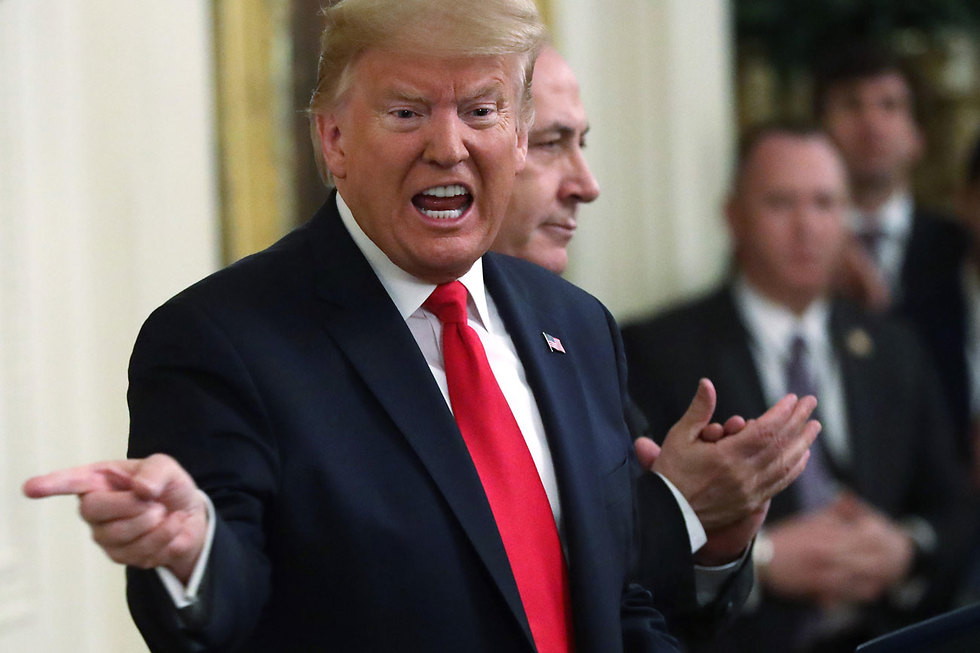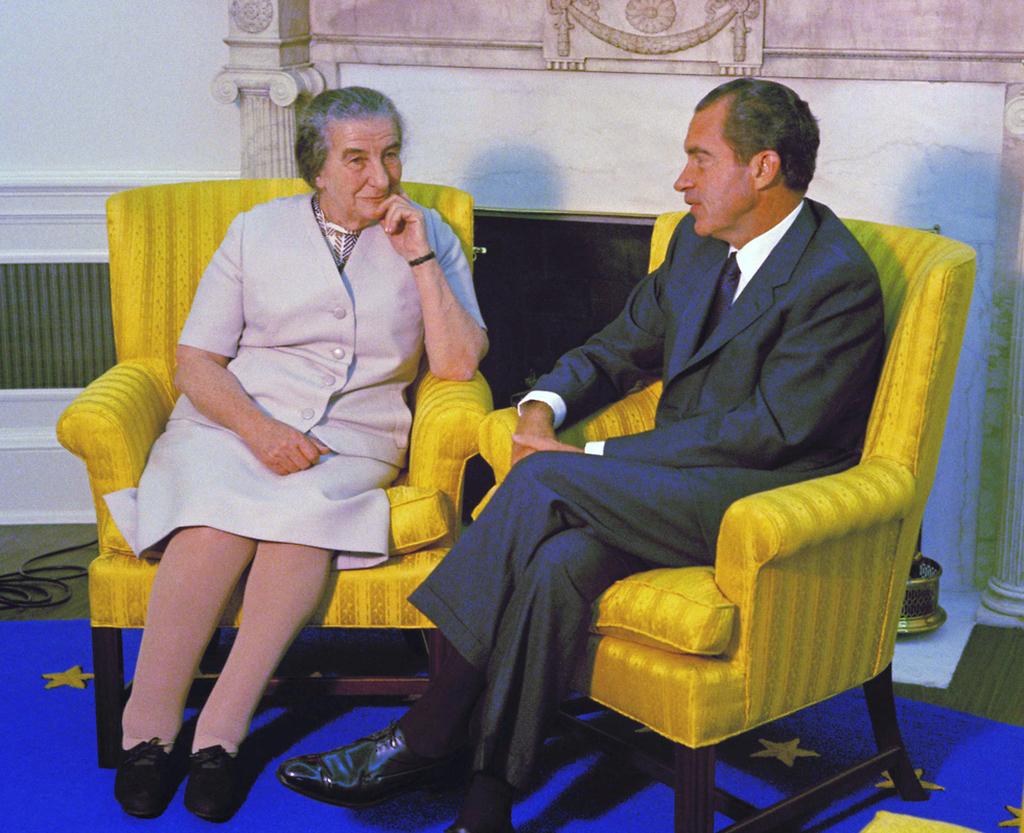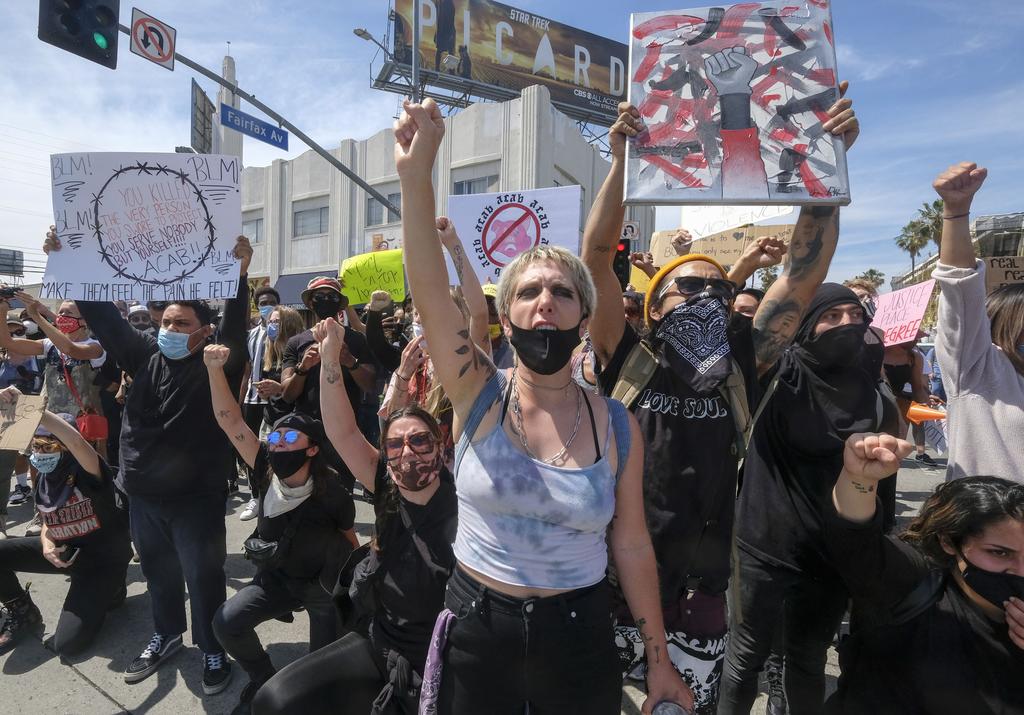Getting your Trinity Audio player ready...
When the coronavirus outbreak started, the world did not know much about the behavior of the pathogen, but observers could gauge how some leaders and politicians would deal with the crisis.
For example, it was clear from the start that the U.S. was heading for catastrophe.
4 View gallery


U.S. President Trump and Prime Minister Netanyahu during the presentation of the American peace plan at the White House
(Photo: Getty Images)
When Donald Trump declared that the virus would disappear in a month, recommended drinking bleach and taking drugs of dubious usefulness, refused to wear a face mask, blamed organizations and foreign nations for the outbreak - thereby absolving him of any personal responsibility – the resulting damage caused by the epidemic not only doubled, but quadrupled.
People may forget, but during the early days of the crisis, Prime Minister Benjamin Netanyahu suddenly started speaking in English during a press conference to the nation, flaunting the fact that Trump the great and powerful had spoken to him on the phone and praised his decision-making.
Netanyahu knew that Trump's opinions on coronavirus were irrelevant, but a little flattery cannot hurt.
After all, the prime minister is an expert on getting international support and supplies - and would not dare damage Trump's ego to stop this aid from flowing.
But Netanyahu was wrong, a little flattery can hurt.
Out of fear of insulting Trump, flights from the U.S. were not halted at the apex of the outbreak, and virus carriers were let into the country without being tested or required to enter quarantine. This was no epidemiological error, but a diplomatic decision.
Trump is not like his unflappable predecessor Barack Obama. He has a troubled and touchy mind and must not be upset in any way.
Since its foundation, Israel has relied on American support. However, it has also always looked to other allies for help.
4 View gallery


Prime Minister Golda Meir and U.S. President Richard Nixon at the White House in 1969
(Photo: AP)
So it was during the 1948 War of Independence, when the American administration declared an arms embargo on the nascent nation struggling for survival, and so it was during the military alliance with France in the 1950s and 60s.
So it was when Golda Meir rejected the Rogers Plan of 1969, when Menachem Begin ordered the bombing of an Iraqi nuclear plant in 1981 and when Ehud Olmert did the same with a similar Syrian installation in 2007.
So it was when Ariel Sharon unilaterally left the Gaza Strip in 2005 and when various prime ministers launched peace talks with Egypt, Jordan and the Palestinians behind the Americans' back.
The United States has always been involved in internal Israeli politics and Israel has always been involved in American internal politics, with American Jews enthusiastically filling the role of mediator.
There were always ups and downs between the two nations, with too many bitter arguments, White House meetings and lobbying efforts to properly count.
But the Trump era has flipped everything on its head; and this time the crisis begins with American society being torn apart.
Trump's election was not the result but rather a symptom of this crisis. The U.S. has not been so divided and partisan since the 1960s.
Many worry that the nation is on the verge of civil war, that the middle class - the backbone of the American success - is collapsing and that economic inequality is increasing. The ever-growing internal strife stems from race, economic status, ethnicity, separation of church and state and opposing worldviews.
4 View gallery


Protestors in Los Angeles following the killing of George Floyd by Minnesota police officers
(Photo: AP)
Discussions on social media have become bellicose and are hindering any type of compromise.
Add to that the coronavirus epidemic, whose financial toll is felt more strongly by weaker parts of society, compounded by severe administrative negligence.
Now Trump is exporting this internal American crisis to the world - the white arrogance, the racism and the polarization.
Leaders in Western Europe understand the damage and are trying to stay away from the White House. Unlike Israel.
Jared Kushner, Trump's advisor and son-in-law, has joined a long line of American Jews who believed they could end the Israeli-Palestinian conflict.
For three years Kushner has worked on devising and marketing the peace plan that bears his father-in-law's name. And until recently, he did so while being cheered on by Netanyahu.
Like American envoys before him, Kushner believed that Netanyahu's Israel was looking for a deal, an agreement and a compromise. But he neither understood Netanyahu nor Palestinian President Mahmoud Abbas.
And because Trump is a tempestuous president who cannot abide being contradicted, Netanyahu never intervened in Kushner's plan.
If reports from Washington are true, Kushner is now demanding that the Netanyahu government first reach internal agreement on the scale of West Bank annexation and only then will the U.S. support the initiative.
Personally, I am glad that the Americans are helping Defense Minister Benny Gantz and Foreign Minister Gabi Ashkenazi to minimize the dimensions of the annexation plan.
But the coalition deal between Blue & White and Likud did leave the decision on annexation to Netanyahu.
Kushner's job is to decide what is good for the U.S., not Israel. Netanyahu should have told him Israel is a sovereign nation.


